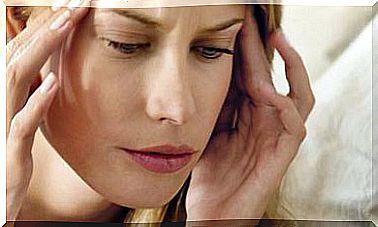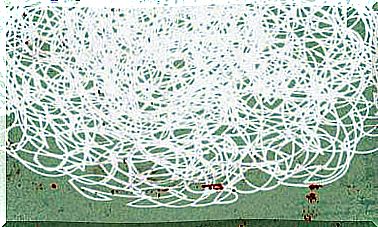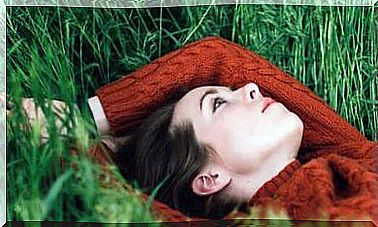“The Child Must Seek His Goals, Not Those Of The Adult”
In contrast to traditional schools where students are part of a production sequence, free schools propose that the protagonist be the child himself.

Manel Martínez is the director of Liberi, a free Primary and ESO school, where children choose what they want to learn, and how to do it.
Interview with Manel Martinez, director of Liberi
What is the reality of children in schools?
There is a false perception in many people that “now children are being asked less”, when the reality is that they are subjected to conditions that adults would not tolerate for us. In many cases it is difficult to understand how the child and his family sustain impossible situations.
For instance?
Children who cannot leave the classroom to drink water or pee, who must maintain order in a line, who cannot speak when they want to, who must wait for the adult to dictate the rules.
Children who are judged, diagnosed, medicated because they “don’t keep up” with the class or “move too much”. Children who come home exhausted and have to do two hours of homework.
But not all schools will be like this …
At school, as an institution, there is an obsession with results, with the logic of success and failure, with specialization, with technology, with competitiveness. If we look at, parameters that would well serve to manage a private company and not so much to talk about schools, which are made up of subjects and not commercial objects. The main problem of the school is treating children as objects and not recognizing their condition as subjects.
Children are treated as “things” in the apparent service of their progression, advancement, and hypothetical future happiness.
And of course, that’s why we say that many children “fail.”
Children invest an enormous amount of hours to obtain very mediocre results in terms of learning. School failure? Maybe the failure is from the school, right? So many hours of class, so much homework, so much anguish, to learn so little?
In schools, children memorize things they largely do not understand, regurgitate them on a test, and forget them. The worst thing is that in the process they lose self-confidence and passion for learning and culture.
What is a free school?
The tradition of free schools is long and wide, with many important names and references, and also with some differences between some lines and others. But what is common to all of them is that the child is the one who decides what he wants to learn and how.
And how is that accompanied? Because in a class there can be many different interests, and many rhythms.
I’ll talk about our school, Liberi. To begin with, there are no groups or classes.
Are there no courses: First, Second, Third …?
No. The groups are formed by the children themselves in a natural way: by interests, by affinities. And then we work from those groups, in which perhaps there are mixed ages.
And how do those groups that are formed work?
Each group has a reference teacher, or tutor, or accompanying adult, or whatever we want to call it. What we do is talk, talk a lot with each group. And then each group draws up its own study program.
So … children choose what they study?
Yes. They express what interests them at all times, and based on that, they decide, and we also propose jobs and activities to them. We build schedules. And we accompany them in their investigations and in their work.
And what happens if a child does not want to study anything?
That happens in the “conventional” school, right? The child who disconnects. That he does not listen in class. That is bored. Who talks to the one next door. None of this happens in Liberi, because children only work on what they really want to work on at all times.
For example, what does a child do in this school?
You could study mathematics, if you want, through manipulative materials: Montessori and others. I could play games of logic. I could speak in other languages, with people who speak those languages and do other things at the same time.
I could paint, draw comics, dance.
You could sit under a tree to read. I could do map puzzles. You could have discussions with adults about history, or about current issues that concern you. You could attend the classes, workshops and activities that we do every day. I could take care of the garden. Thousand things.
Or could I play and that’s it?
Playing is how we learn almost everything.
And what are the relationships between children like?
Social relationships are fundamental, it is where we grow as human beings. Adults have a lot of respect for relationships between children, we place a lot of value on them. We observe, we are available, and when we consider it necessary, we approach and propose to speak.
This is what we do most in Liberi: talk. Children talk and talk and talk: with each other, with us.
And it is thus, speaking, how they learn and discover all the important things.
What are you talking about?
Of everything. From their relationships. Of their conflicts. Of what worries them. About what they live in their homes … Sometimes adults come to visit Liberi and are surprised at the ability that children have to express their reality, their feelings, their thoughts. But that’s what they do all the time, talk.
And if they express concerns that have to do with the scope of their family, what happens to that?
We also speak with families. We must clarify that we are a school and not a therapeutic space. But the act of speaking, in itself, is liberating and comforting, in a society where there are not many spaces for listening.
Let’s say that the family enters the school with its projections, and that we could contribute so that motherhood and fatherhood were critical of their own family functioning, and that they became energies in favor of the subjectivity of their own child.
You mean that the school not only receives the children but can also support or help all those conflicts with which the mother and father come to regenerate into something more fluid for the child …
Of course. What does a family project onto the child? Projects the desire for him to transcend his condition.
For example, that he strictly complies with what they are not.
Sometimes precisely what we cannot be is what we project as a mandate on our children. And we get very angry if they do not fulfill what, previously, we have “failed”. This of course we do not do consciously.
And sometimes the difficulties of the children have to do with those commands of the parents.
Of course. We try to shed some light on the complex relational dynamics that cause, for example, a child to be slow to read or not understand things or to have problems with mathematics.
What does this mean?
We receive children who come from other schools, where it has been said that this child “is slow” or “has trouble understanding” or “does not make an effort.”
And what we say is: “Slowness does not exist.”
It only exists in relation to what you expect of someone. We do not seek that the child works for the objectives of the adult, but for his own development as a subject.
There are many families who choose the Liberi school. Perhaps many parents project that in this school they will solve problems for the child, even if they do not understand how it works very well ?
Many families approach, explaining: “My son is not doing well.” The family’s story about their son has social clues that are repeated. Parents often say: “My son has learning problems but he is very good at drawing, or at music.” Of course: as art is not a resultist … your son has hidden himself in something where he is not judged.
It is as if there were first and second class learning.
The school has appropriated so much the result and the subjects, that it has made the knowledge its own, but at a real level there is not so much difference between cutting a piece of wood and adding. That is, everything would be part of your relationship with things.
We tell families that we do not want the child to have your relationships with things, but rather that we want them to maintain their relationships with things. If he has a relationship with mathematics, it is yours. The number is presented to him as an abstract object and he has to hold it up. You would have to withdraw from their relationship, or if not, live it like him.
Or learn how he relates.
Look at it, but do not judge it, because you are introducing that parameter of the result.
What does a 9 or 10 year old say about the Liberi school?
They would tell you that at school they can do what they want. That would be a mythical vision, because you do what you want, but depending on your relationships, and sometimes they are a brutal imposition.
But they have it very clear: in Liberi they are themselves and they are free.









